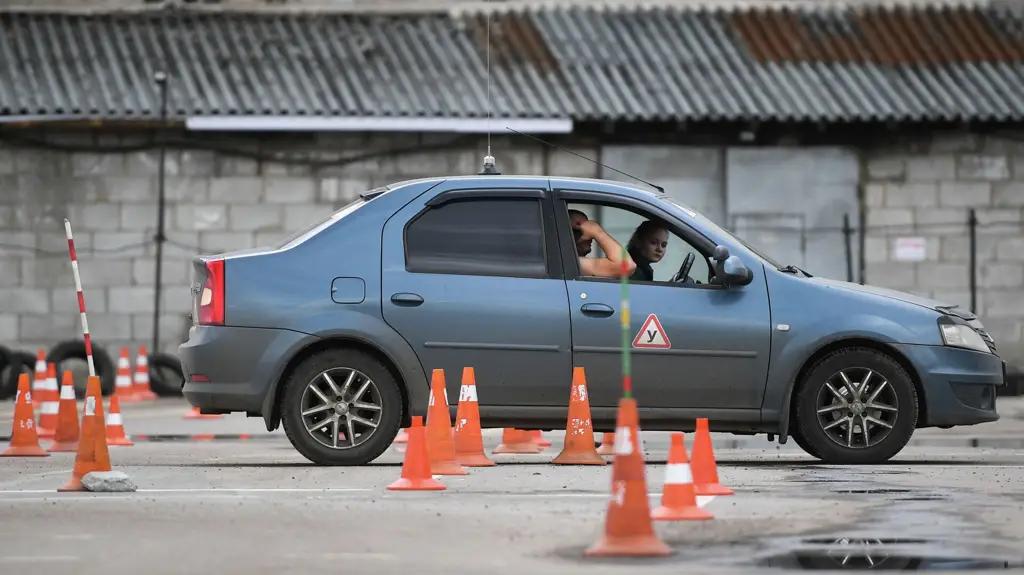
Published
08/15/2025, 13:33In Kyrgyzstan, there is renewed talk about the quality of driver training. The State Agency for Vehicle and Driver Registration is proposing a temporary ban on issuing licenses to new driving schools from October 15, 2025, to December 31, 2027. At first glance, this may seem like an excessive measure, but if you look deeper into the situation, it becomes clear that this is not about formalities, but about road safety.
Today, there are 340 driving schools operating in the country, and their number continues to grow. However, the quality of training does not always improve with the emergence of new organizations. Inspections resumed by the agency in January this year revealed an alarming picture: almost all of the schools inspected were in breach of licensing requirements.
Some lacked training vehicles, others lacked equipped classrooms or qualified instructors. There are also more serious violations, when a student is registered “on paper” but in reality does not attend classes or get behind the wheel.
“It has been observed that some unscrupulous driving schools do not conduct full-fledged educational activities, but only register students and issue certificates of completion without their actual participation in the educational process,” the document notes.
Formally, before a license is issued, a driving school undergoes a pre-licensing inspection. But in practice, many submit applications without being prepared and are rejected again and again. Agency employees have to spend time and resources on repeated trips across the country. Meanwhile, 265 training organizations have not even undergone their first scheduled inspection.
At the same time, the flow of applications for new licenses is not decreasing, and supervisory work is turning into an obstacle course. Instead of controlling the quality of training, we have to deal with formal refusals.
The statistics on the issuance of licenses speak for themselves. In 2024, 60,076 driver's licenses were issued in Kyrgyzstan. Of these, 16,932 people passed the theory test on the first attempt, and 7,660 on the second. The rest either retake the exam several times or fail to pass it at all.
At the same time, before the inspections began, a significant number of schools operated without supervision due to a moratorium on business inspections that was in effect throughout 2024. Licenses were issued, but it was impossible to check how honestly and effectively these schools taught.
The consequences of poor driver training are not only evident in reports. Traffic accidents in Kyrgyzstan claim hundreds of lives and leave many injured every year. Often, those responsible are people who either do not know the rules well or obtained their licenses without passing the exam. President Sadyr Zhaparov recalled that until 2020, driver's licenses were sold en masse for 15–20 thousand KGS. This practice has now been stopped, but its consequences are still being felt, with some drivers unable to recognize even simple road signs.
The proposed moratorium will not affect government agencies and license renewal procedures, but will stop the issuance of permits to new private driving schools.
This time will be used to conduct a comprehensive audit of existing organizations, tighten requirements for their material base and instructors, and introduce an automated system called “Driving School.”
This system will record class attendance using Face ID technology, keep an electronic log, and enable real-time monitoring of the learning process.
It should be noted that the proposed temporary ban will not apply to state educational institutions, as well as to licensing processes, including license renewal, issuance of duplicate licenses, suspension of licenses, renewal of licenses, termination of licenses, and revocation of licenses.
From September 1, another innovation will appear in the country: drivers who violate traffic rules will be tested on their knowledge of the rules right on the road. If the test is failed, the license will be temporarily withdrawn and returned only after successful retaking at the “Unaa.” Moreover, each subsequent attempt will be more expensive than the previous one. The authorities hope that this will make drivers take their knowledge more seriously.
Feedback from those who have obtained a driver's license in recent years shows a significant variation in the quality of training. Some graduates note that the theoretical part was well presented and structured, but there were clearly not enough hours of practical training. Others complain about canceled classes and driving lessons that were reduced to rare trips on empty roads. There are also those who openly admit that they bought their licenses.
"I chose the cheapest driving school — I think it was Ak Zhol, located on the square. The theory was taught well, and I passed the theory exam with a perfect score on my first try. But the practical part depends on the instructor, and I passed that on my first try too. I got my license, but since then I've only driven 4-5 times — I just don't have the opportunity to practice," says Alena (name changed).
According to her, one of the reasons for accidents on the roads is the purchase of licenses, especially in regional driving schools.
Many admit that driving school didn't teach them much: the lessons were boring, and they passed the exam by cramming. Without regular practice, the knowledge they gained is quickly forgotten, and as a result, people start to really learn to drive behind the wheel.
There are also many who openly paid for results. The test control system does not always help: questions are hinted at, and there is no practical driving test at all. According to our interlocutors, entire groups of 7–10 people or more can “pass” in this way at one time.
It is difficult to say whether the moratorium will solve all the problems that have accumulated in the system, but tightening control over driving schools can be considered a positive step.
This will weed out organizations that are just going through the motions and leave those who are really ready to teach on the market. In the long term, this means fewer accidents, more responsibility, and an understanding that a driver's license is not just a document, but proof of real skills.
